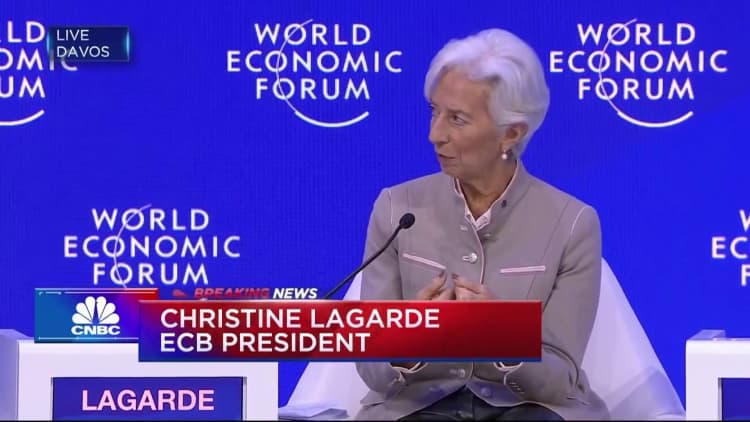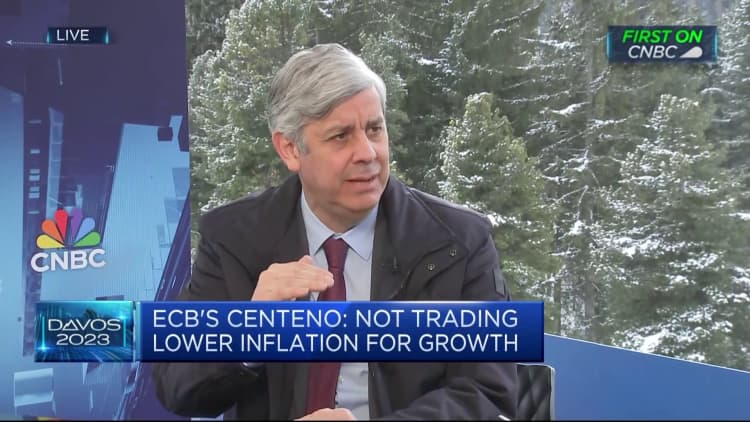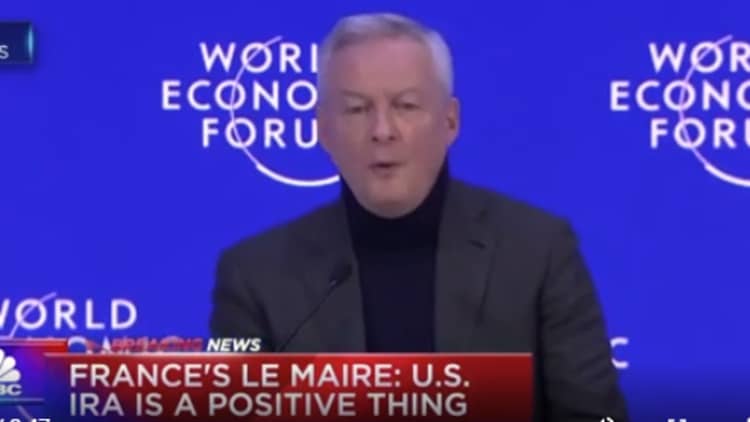The European Central Bank says it’ll ‘stay the course’ on rate hikes. But it’s not clear for how long
Christine Lagarde, president of the European Central Bank (ECB).
Bloomberg | Bloomberg | Getty Images
European Central Bank President Christine Lagarde has repeatedly used the phrase “staying the course” when referring to upcoming rate decisions, but some market watchers doubt the bank will keep its hawkish stance for much longer.
The ECB entered tightening mode last year with four rate hikes in an attempt to control high inflation across the euro zone. These decisions pushed the main deposit rate from -0.5% to 2%.
Recent data showed a two-month consecutive drop in headline inflation, but this is still well-above the ECB’s 2% target, hence several comments from ECB officials on how they need to keep raising rates, including Lagarde’s “we will stay the course to ensure the timely return of inflation.”
But ECB watchers are asking: for how long?
“Uncertainty is higher on the ECB’s moves after March, with a few hawkish Governing Council members indicating further hikes in the second quarter,” Francesco Maria Di Bella, fixed income strategist at UniCredit told CNBC via email.
“The size of those rate hikes will depend on the inflation outlook. Lower price pressure will probably allow the ECB to hike by 25 basis points, rather than 50, in May and June,” he added.
ECB Executive Board Member Fabio Panetta reportedly said earlier this week that the central bank should not pre-commit to any specific rate moves beyond its March meeting.

Markets have priced in a 50 basis points hike for the next two policy meetings, one of which takes place next week and the other in March.
“Panetta’s speech shows that ECB doves are regrouping, but hawks are still firmly in charge for at least the next couple of meetings, for which our base case scenario is two 50 basis points hikes,” Davide Oneglia, director at TS Lombard said in an email to CNBC.
The ECB, which has been acting as the region’s central bank since 1991, has historically been more on the dovish side after many years of moribund inflation. But the energy crisis, strict supply chain issues, among other bottlenecks have driven prices higher across the bloc and led to a new tone from the central bank.
A Reuters poll released earlier this week showed that markets expected the ECB to pause rate hikes in the second quarter once its deposit rate is at 3.25%.
“How far the ECB will actually be able to go after March remains to be seen,” Oneglia said, adding that “a terminal rate of 3.50-3.75% seems possible” but the ECB “cannot diverge too much for too long from that of the Fed.”
Traders have started considering whether the Federal Reserve might end its tightening cycle in upcoming meetings after weaker-than-expected data last week.
“So, if the U.S. entered a more severe recession than anticipated and/or the Fed were to cut rates aggressively in response to any slowdown, [the] ECB’s rate hikes could stop sooner,” he said.
However, the economic data in the euro zone seems to be surprising on the upside. Flash euro zone composite purchasing managers’ index figures, out Tuesday, showed positive growth.

This lowers the chances that the ECB will have to end or even revert its hawkish tone, but analysts do not think the central bank will need to keep hiking for much longer.
Andrew Kenningham, from Capital Economics, also told CNBC he expects another 50 basis points hike in February and March and then 25 basis point increases in May and June.
“After that we see the policy rate staying unchanged until the second half of 2024,” he added.
One of the aspects to consider is how inflation might ease further in the coming months as energy costs keep dropping.
In anticipation of what the ECB will announce next week, Kenningham said: “The language will be hawkish and stress the need to do go further and to ‘stay the course’ without being explicit about amounts and dates for rate hikes.”

For all the latest World News Click Here
For the latest news and updates, follow us on Google News.

